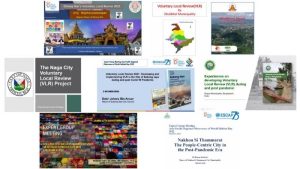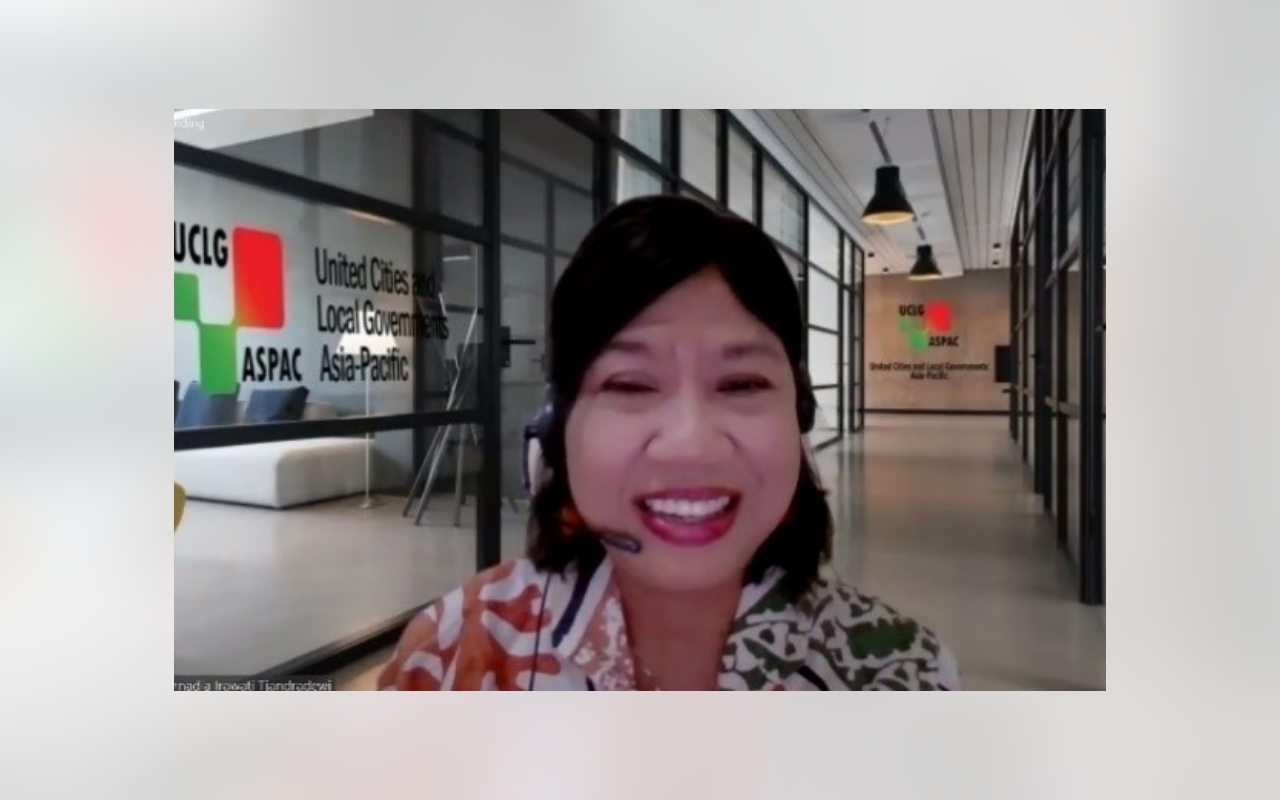October 3, 2022 | UCLG ASPAC, represented by Secretary General Dr. Bernadia Irawati Tjandradewi urged for productive dialogue across all levels of government, collaboration and partnership, and consolidated advocacy and access to financing for local governments in the Expert Group Meeting organised by the United Nations Economic and Social Commission for Asia and the Pacific (UNESCAP) on “Leveraging SDGs Localisation to Strengthen Cities’ Role in Addressing Interlinked Crisis in the Post-Pandemic Era to Leave No One and Place Behind” last October 3, 2022.
The meeting was conducted as the world commemorates World Habitat Day, held every first Monday of October, with this year’s theme “Mind the Gap. Leave No One and Place Behind.”
 The COVID-19 pandemic slowed the progress of the SDGs achievement in Asia-Pacific and exacerbated multiple interlinked crises that impact cities in the region. These crises include economic inequalities, urban food insecurities, rising energy costs, climate emergencies, urban air pollution, and unequal urban health systems. Leveraging SDGs localisation can help address these challenges and is the focus of ESCAP’s publication “Localising the Sustainable Development Goals to Address Interlinked Crises in the Post-Pandemic era”.
The COVID-19 pandemic slowed the progress of the SDGs achievement in Asia-Pacific and exacerbated multiple interlinked crises that impact cities in the region. These crises include economic inequalities, urban food insecurities, rising energy costs, climate emergencies, urban air pollution, and unequal urban health systems. Leveraging SDGs localisation can help address these challenges and is the focus of ESCAP’s publication “Localising the Sustainable Development Goals to Address Interlinked Crises in the Post-Pandemic era”.
Several cities in the region presented their experiences in localising SDGs and implementing the Voluntary Local Review (VLR). Chiang Mai City envisions itself as a low-carbon city, innovative city, and smart city. Dhulikhel Municipality is the first local government in Nepal to accomplish its VLR which covered SDG 1 (no poverty), SDG 3 (good health and well-being), SDG 4 (quality education), and SDG6 (clean water). Jambi City aligned its vision and mission with the SDGs and developed local regulations for SDGs implementation. Naga City created policies that enabled public participation in local planning and budgeting, established a statistical committee, and partnered with the National Economic Development Authority (NEDA) which supported their preparation of the VLR. Nakhon Si Thammarat’s VLR process involved people participation, SWOT analysis and SDGs priority, mapping SDGs priority with the city’s projects, and implementing the SDGs through local actions. Singra Municipality developed the first VLR in Bangladesh and helped them create baselines, identify critical sectors for improvement, and enhanced their knowledge and capacity on linking and monitoring local development progress with the SDGs. Subang Jaya’s VLR prioritised SDG 3, SDG 5 (gender equality), SDG 8 (decent work and economic growth), SDG 11 (sustainable cities and communities), SDG 12 (responsible consumption and production), SDG 13 (climate action), and SDG 16 (peace, justice and strong institutions), and served as a tool to measure the effectiveness of their programmes and projects and to support economic and social recovery from the pandemic. Common challenges identified by local governments in developing the VLR were data availability and collection, and funding.
The inputs from the meeting will feed into the regional review of SDG 11 as part of the preparations for the 2023 Asia-Pacific Forum on Sustainable Development and the next ESCAP flagship report on cities to be launched at the 8th Asia-Pacific Urban Forum.











